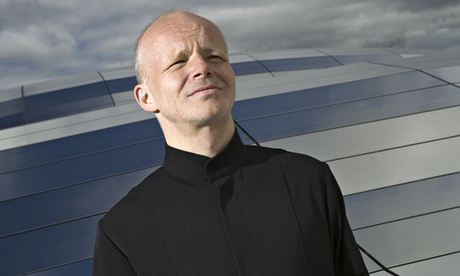
Broadly speaking, there are two approaches taken with performances of Bach's Passion settings: the historically informed route of gut strings, minimal choirs and parsimonious sound; or the civic approach of huge choral societies and ungainly 19th-century translations.
Thomas Zehetmair's performance with the Royal Northern Sinfonia and Chorus split things directly down the middle. The Sinfonia is by no means a period band, but it is a superlatively responsive one; and almost exactly the size of the double orchestra that would have struck Bach's original congregants as incalculably ambitious.
It was the intense sparring between the twin bands – the first led by Bradley Creswick, the second by Kyra Humphreys – that became the evening's most compelling feature. For my money, the second orchestra just shaded it: Humphreys producing a tauter, more idiomatic response to Creswick's slightly florid obbligatos.
At almost exactly the same size as the orchestra, the choir – expertly drilled by chorus master Alan Fearon – provided the ideal balance between heft and manoeuvrability. The soloists sang from the back, though James Oxley seemed a little ill at ease with the wandering brief given to the evangelist that left him navigating the platform like a loose end rather than the fundamental knot of Bach's conception.
Christopher Ainslie is a very English-sounding counter-tenor, more Alfred Dellar than Andreas Scholl; though his tight, focused tone acquired pleasing plangency for a sublime Erbarme Dich. Nicholas Merryweather's Jesus had great gravitas; Mhairi Lawson and Benjamin Bevan were equally outstanding in the soprano and bass arias.
It's never clear whether to receive the Passion as a great concert performance or a hallowed act of devotion. Zehetmair's performance was rewarded with an extended pause of meditative silence before the applause began – the perfect response to a performance that consistently balanced the best of both worlds.
• Did you catch this show – or any other recently? Tell us about it using #gdnreview

